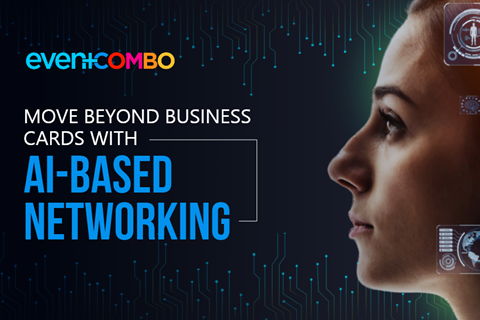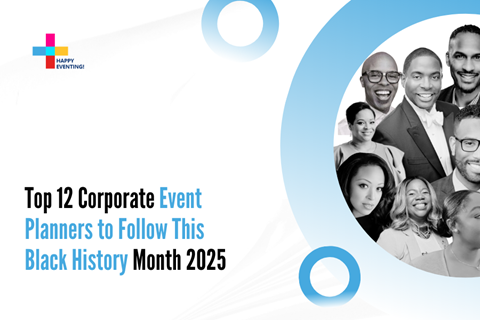

Recently, in an interesting conversation with Nick Borelli Director of Marketing & Growth AllSeated and exVo, Eventcombo explored the role of the metaverse in event tech and how, eventually, in the near future event planners will be pushed to explore this concept that holds so many possibilities for innovating events as a whole. According to a Bloomberg report, it is estimated that metaverse will grow exponentially and reach an estimated value of $800 million by 2024.
In this blog, we have compiled some interesting insights and information shared by Nick.
What is Metaverse?
It is the next version of the internet, the next evolution in digital communication that is drastically changing the future of events. It is actually the better version of the internet that will decide the way we’ll meet, communicate, and collaborate online. Metaverse and event management can go hand in hand. Let us see how but first let us see the timeline.
Metaverse timelines
a. 1992, Birth of the Concept
Science fiction writer Neal Stephenson coined the term “metaverse” in his novel Snow Crash, where humans, as avatars, interact with each other and software agents, in a three-dimensional virtual space which is the metaphor of the real world.
b. 2002, Digital Twin
The concept and model of the digital twin – the digital counterpart of a physical object– was publicly introduced in 2002 by Michael Grieves, then of the University of Michigan, at a Society of Manufacturing Engineers conference.
c. 2003, Second Life
An online world in which users (called residents) create virtual representations of themselves, called avatars, and interact with other avatars, places or objects. Introduced the idea of user-generated content (UGC), which is when users contribute buildings, objects or even animations to an evergreen virtual space.
d. 2009, Blockchain
Along with the genesis of bitcoin, blockchain was created to serve as a public transaction ledger of bitcoin. This created the foundation of a decentralized economy that can exist independently in the metaverse.
e. 2011, Minecraft
The game that furthered the concept of user generated content to an infinitely customizable environment. Players have the freedom to create a world of their own vision, build settlements, hierarchy, assign roles to players, communicate and socialize with others.
f. 2016, Pokemon GO
One of the first games to venture into augmented reality by overlaying virtual graphics and digital interconnectivity to the real world.
g. 2017, Fortnite
Massively successful battle-royale style video game, which, over time, evolved into a preferred social network for much of Gen Z, and included live events, concerts, virtual currency (V-Bucks), and avatar customizations.
h. 2020, COVID
The quarantine lockdowns during the peak of the pandemic pushed people to search for social interaction, community, and live entertainment online. This catalyzed a shift towards a general acceptance of the virtual world, making the idea of a metaverse more realized.
What can you do in a metaverse?
New use cases and opportunities are rapidly forming, and the possibilities are endless. Since, it is a next-generation internet or more immersive digital space which has redefined the way we look at business, entertainment, media, group and interpersonal communication, and so much more.
Let us take a look at metaverse real life use cases
XR (extended reality) = VR (virtual reality) + AR (augmented reality) + MR (mixed reality)
The metaverse is an immersive, 3D experience, blending the virtual and physical worlds, that incorporates several elements like XR, VR, AR and MR. All these work towards giving us a mixed experience.
VR/AR Today
VR and AR, similar to the metaverse, are considered to be in their early stages of development. Though there are plenty of commercial VR goggles, there is much progress to be achieved in the hardware to make them a more normalized addition to life.
“Today, the VR headsets, they’re still kind of a bit clunky, they may be a bit heavier than you would ideally like them to be. There need to be advances in being able to express yourself and having higher resolution, being able to read text better, a number of things like that”- Zuckerberg (Verge)
VR and the Metaverse
“Virtual and augmented reality are, at a minimum, metaverse adjacent. If you’ve attended a work meeting or a party using a digital avatar, you’re treading into the neighbourhood of metaversality.” (NYT)
According to Zukerberg “What virtual and augmented reality can do, and what the metaverse broadly is going to help people experience, is a sense of presence that I think is just much more natural in the way that we’re made to interact”
One Metaverse or Many?
Where are we in the scheme of things?
It is a virtual equivalence of a world, where metaverse could be the real internet clone, a new internet where everything you do in one environment remains there only. For example, the clothes you wear in one digital space will not get transferred to another digital space, even though an individual’s preferences move from one system to another. Basically, it’s a bunch of close systems where what happens with you in one environment doesn't necessarily move to other environments.
Your Skills Transfer to the Metaverse
Anything that you do in events really is about behavioral change. Events are intentionally designed experiences for behavioral change. If no change comes out of it, why bother - the event didn’t even need to take place. In an event people come in one way and come out the other way, what happens in the middle is the activation of a change. For example, when you go to a wedding and leave the wedding it should make you feel different, feel so delighted that you would want to talk about it afterward. When we talk about stakeholders or corporates, they should feel more connected to the organization or brand, and ultimately that should lead to conversion post-event. Events in metaverse become more participatory in nature due to its real life like experience.
Why People like Metaverse?
Why People dislike Metaverse?
More organizations and tech giants are embracing the introduction of events in the metaverse for business despite its advantages and disadvantages (which, by the way, are very few). There is no denying the great potential it holds and how it is disrupting the event sector. It would be interesting to witness how this will just turn out to be the next big thing!

Networking is one of the most valuable ways to discover boundless opportunities and for 77.7% of business professionals , in-person conferences open a greater scope to make rewarding connections.

When planning a healthcare fair, the goal goes beyond booking a venue and sending out invites. You’re creating an event that brings together healthcare professionals, researchers, and exhibitors, all seeking value and...

Diversity and inclusion are at the heart of the events industry, where planners are focused on creating experiences that bring together people from all walks of life.